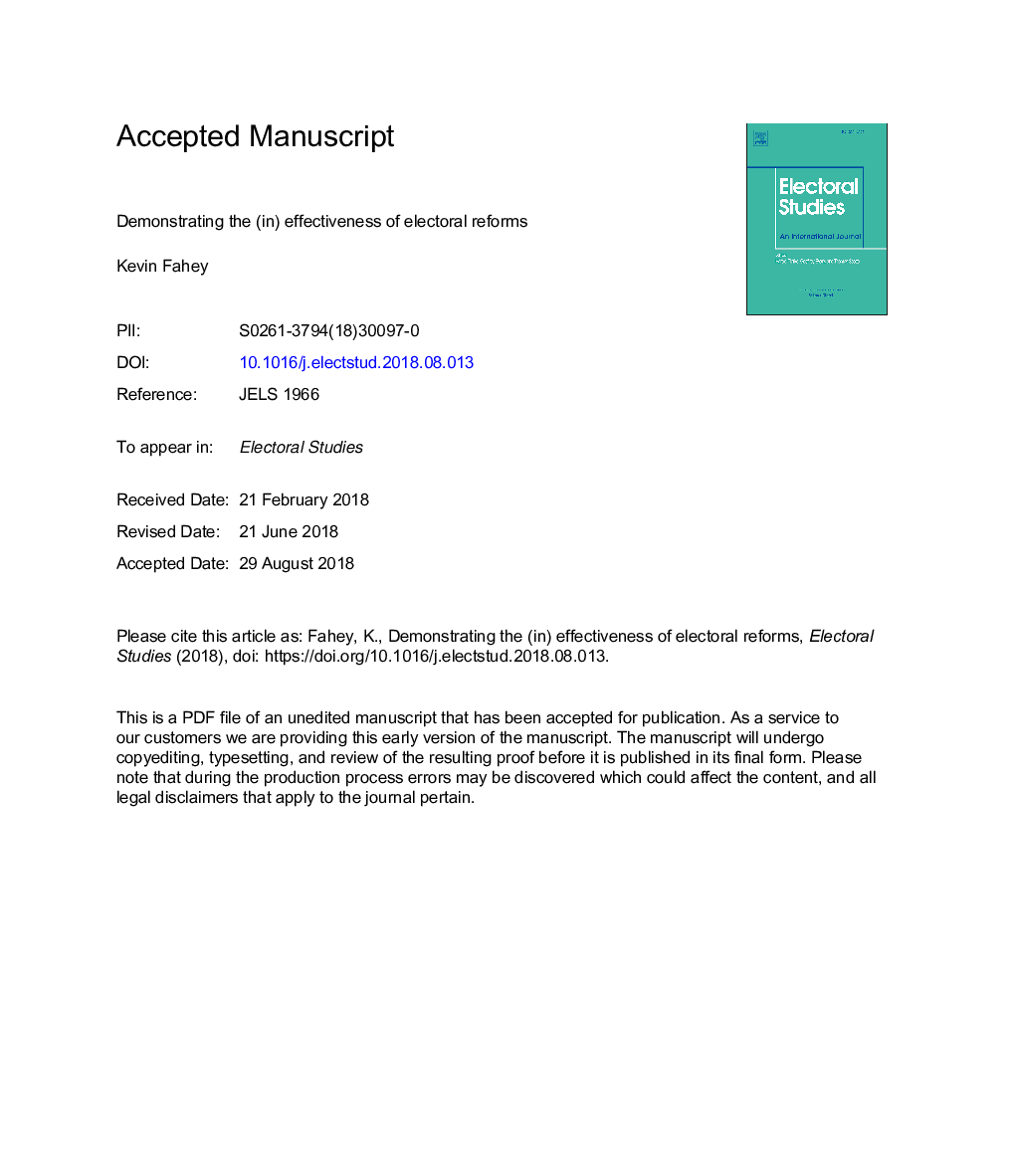| Article ID | Journal | Published Year | Pages | File Type |
|---|---|---|---|---|
| 11027535 | Electoral Studies | 2018 | 41 Pages |
Abstract
Have electoral reforms to reduce the incumbency advantage worked as intended? I articulate a theory wherein reforms may contribute to a weakening incumbency advantage, or may counterintuitively weaken challengers by changing party incentives. Combining causal inference techniques on a set of 70,000 U.S. state legislative elections, I estimate changes to the annual incumbency effect after the implementation of two popular reforms, term limits and staffing cuts. This test arbitrates between two competing expectations of how reforms should change the incumbency effect. My findings show that the reforms did not work as intended. The incumbency effect grew faster in term-limited states than in states without term limits, while staff cuts failed to slow the growth of the incumbency effect. I conclude that party incentives ought to be considered when citizens engage in future policy reforms regarding the incumbency advantage.
Keywords
Related Topics
Social Sciences and Humanities
Social Sciences
Geography, Planning and Development
Authors
Kevin Fahey,
